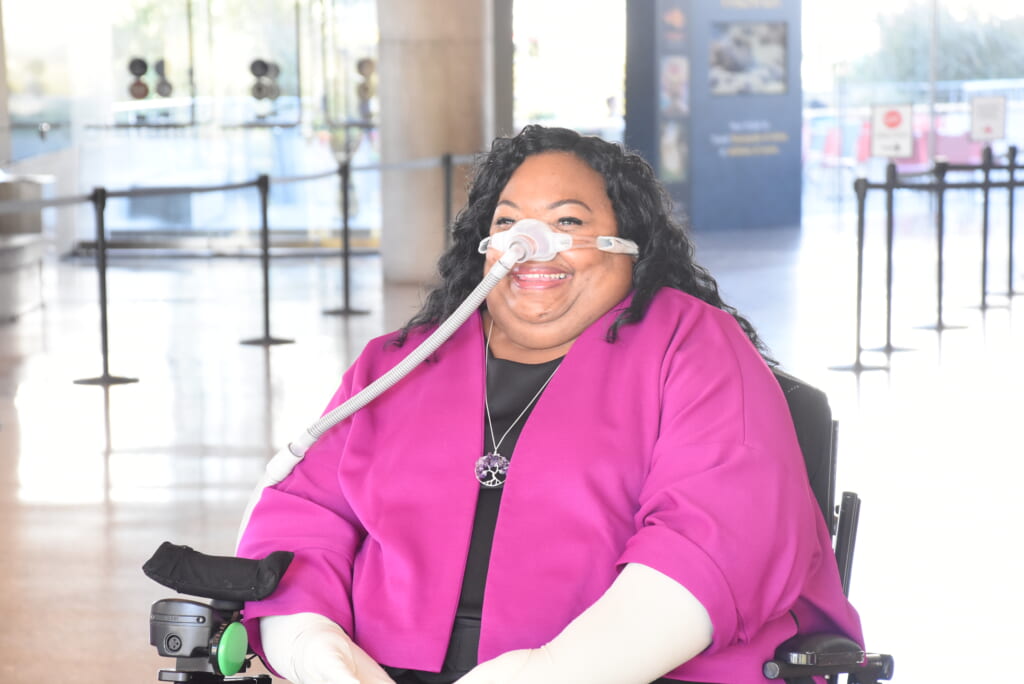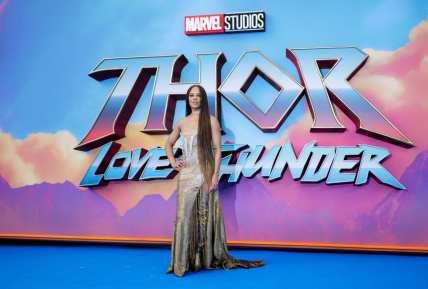Filmmaker Crystal Emery not only informs, she inspires
The filmmaker, writer and activist pushes to change the narrative of how we see ourselves as people
Filmmaker, artist and activist Crystal Emery is in the throes of a new project that she says will cover issues “people don’t want to talk about.”
Our Humanity will cover issues like the Black mortality rate, the importance of understating family medical history and more. The film does not yet have a release date.
“I want to inform people,” Emery said in an interview with theGrio.
She should have added the verb “inspire” to that quote.

Emery speaks in a whisper, interrupted by the occasional beep of a ventilator. In 1981, doctors diagnosed her with Charcot-Marie-Tooth disease, which causes nerve damage mostly to the arms and legs, making use of the limbs difficult.
Now a quadriplegic — a term she’s uncomfortable with because she finds it limiting — she’s also battling other health issues.
Emery’s experience as a disabled person and Black woman informs much of her work. As a young girl, she started falling down.
“Everyone wrote it off, saying I was clumsy,” she wrote in the Faith and Determination section of her website.
Emery underwent a painful surgery that relegated her to a body cast for two months. It was a physically and mentally painful time for a teenager who loved artistic endeavors, like singing, acting in school plays and performing for people in her Connecticut neighborhood.
In addition to health challenges, Emery also started to experience racism as a teenager, noting two instances. Black and white children were not allowed to play together on the school playground, she said. She also recalled a violent incident in which a white boy approached her, said, “My father said Black people have red blood,” and proceeded to cut her wrist.
“I beat the hell out of him,” said Emery, who still has the scar from the encounter.
As Emery grew older, she found difficulties in another area — medicine.
In one instance during a three-week stint in and out of the hospital, Emery said a rude doctor refused to order a heart test that she insisted was needed.
That type of disparaging treatment, unfortunately, isn’t unusual. Researchers have, for decades, examined the health-care disparities Black people face, including the undertreatment of pain, inequality and racism in the health-care system and how biases impact care.
That experience challenged Emery to write the 2010 film Deadliest Disease in America, which focused on the societal ills of racism in the medical profession.
Emery also makes a difference in other ways outside her film work. She advises seniors to take someone, whether a family member or friend, to the doctor with them if they thought they needed to.
“I gave out this little card and about three months later, one of the senior citizens wrote me a note about how she had been going to her doctor’s appointment. The doctor said, ‘Only one can be in the room’ and she said, ‘Oh no, Crystal Emery told me I could bring another person,’” Emery explained.
“We know that the work works. People just need a roadmap,” she said.
Emery has, for years worked tirelessly to provide that roadmap. Her broad cross-section of work in multiple mediums all coalesces around creating a more equitable society.
For example, the synopsis for her 2016 film, Black Women in Medicine, said it was the ”first documentary to explore the history, contemporary issues and future possibilities of African-American women physicians by featuring the diverse voices of young medical students, practicing physicians and elder trailblazers.”
Emery then created the organization URU, which fosters “communication and understanding among diverse people.” She’s also an advocate for STEM education, a public speaker and more.
“I believe that we all have a purpose,” she said.” My purpose is to change the narrative of how we see ourselves as people.
“It has to be a collective, so everybody sees each other as multidimensional people. If I only see you one way I’m only going to deal with that way. Every prescription doesn’t fit everybody.”
TheGrio is FREE on your TV via Apple TV, Amazon Fire, Roku, and Android TV. Please download theGrio mobile apps today!


